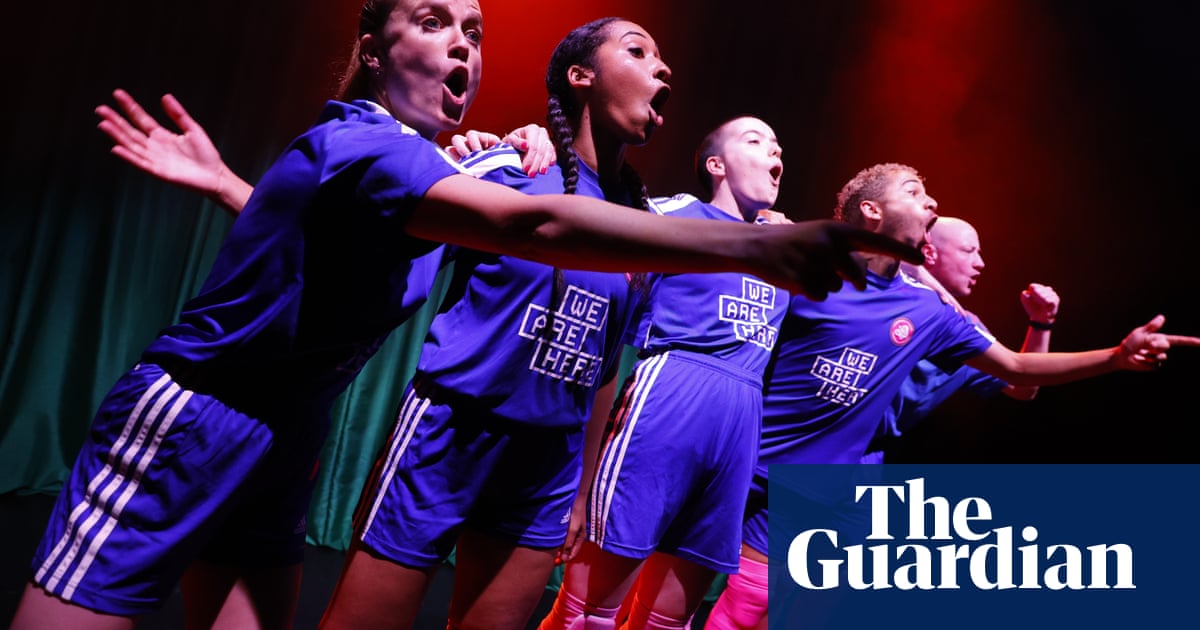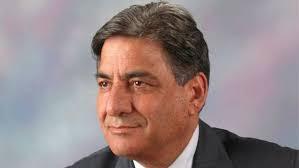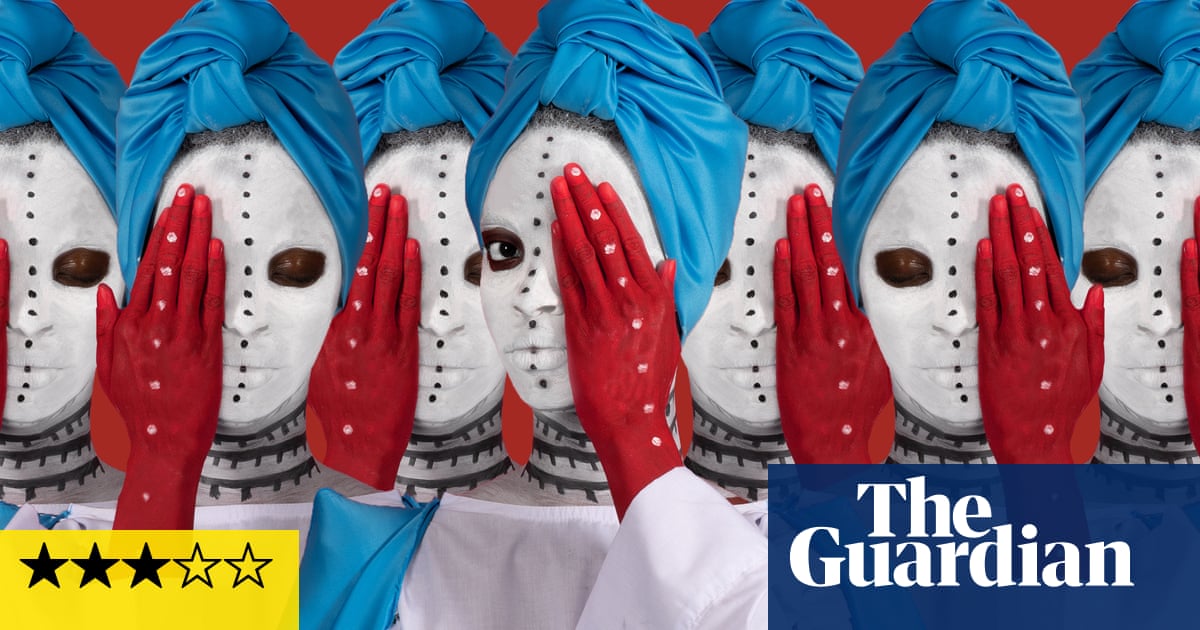
With muddy knees and soggy feet, we slop around Edinburgh’s Meadows park, aiming roughly for goalposts made from kitbags and spare shoes. “If that had gone in, it would have been stunning,” teases actor Eleanor Rattenbury as the ball flies way wide.
Rattenbury is one of the stars of Pitch, a show about football, and all its sorrows and joys on and off the field. Every Sunday at the fringe, the energetic cast lead post-show kickabouts on the Meadows. A winner of the Pleasance’s Charlie Hartill award, their show – staged at the Pleasance Courtyard – is based on interviews and stories that the company November Theatre gathered from LGBTQ+ grassroots football teams across the country. Written and devised by the company, and staged with dance warm-ups, lip-synced interviews and love stories, it has the fizzy feeling of tales shared with new friends over pints at the pub.
Today, a group of friends and strangers have joined for a slippery match under a muggy sky. “Don’t worry,” reassures cast member Elijah Harris. “This isn’t the place for skills.” As in the play, we introduce our names, pronouns and declare any injuries before setting off for a scrappy, sweaty game. Everyone is quickly out of breath and laughing, all relaxed limbs and easy conversations. Goals are scored but no one is keeping count.
Pitch grew out of the delighted frenzy over the Lionesses extraordinary display at the Euros last year, a feeling only elevated this year as the team soared into the World Cup final. “Football is such a large part of people’s lives and the communities they build,” says the play’s director Nell Bailey, “but there hasn’t been a great representation of queerness and football. We wanted to make something in conversation with fans and players across the UK.”
Outside the show, most of the all-LGBTQ+ company are in queer football teams across London, with self-admitted varying levels of technical ability. “I love my team because I’m shit,” Bailey laughs, “but every time I play and the ball goes in the right direction, they cheer.” It is a different story for Elizabeth Hope, who played for the England youth team as a teen, when women’s football was still hugely overlooked and underfunded. “Back then, the viability of being a professional sportsperson didn’t seem as tangible as it would now,” she says, her pride in today’s England team tinged with sadness at what could have been, “so I floated away from it.” Having stopped playing for years, she discovered a queer five-a-side club in east London that rekindled the fun of it all.
For many of the players, joining an LGBTQ+ team has reopened the door to a sport that had no longer felt like it was for them. Alongside meet-cutes and in-jokes, Pitch homes in on the obstacles that prevent participation in football for many queer players: the blatant homophobia in the men’s game, the outright transphobia that seeps through sport. “I’ve grown up surrounded by football,” says Harris, who yells encouragingly on the pitch even when the ball sails off-kilter into empty space, “but I stopped playing after university. I’m transgender and I didn’t really know where to play.”
Like Hope, Harris found his way back through the growth of queer football teams in London. But like most sports today, football has depressing limitations outside grassroots teams; for trans players, competing above this level isn’t really an option. “Is this where we stop?” Harris asks. “Is this the standard we are allowed to get to?” These questions, explored within the show, are heavy with exhaustion at having to constantly fight for a place on the pitch. He sighs. “When will trans people in sport not be such a big deal?”
Throughout Pitch, we hear snippets of the original interviews, some conducted on the sides of busy pitches, others over the privacy of Zoom. The whole show bustles with energy and movement, the delight at progress and the drive for further change. More than anything, it exudes the easy community that joining an LGBTQ+ team can offer, the joy of how it feels to just get out there and play.
Our haphazard match has a similar, scrappily happy feel. Onlooking silent disco-dancers and circus punters watch our accidental headers and near own goals, the pitch outlines expanding to wherever the ball goes. After the fringe, the company hopes to tour the show back to the places they conducted interviews: Glasgow, Nottingham, Bristol. “It doesn’t have to be performed in theatres,” Bailey says. “It could go to sports grounds. And given that we’ve got a roomful of actors who like kicking a ball around, we would invite anyone to come and do the same with us afterwards.”
As we leave, sweaty and smiling, with some of the group splitting off for the pub, one of the new players asks if the cast know of an LGBTQ+ team near them. It’s an addictive feeling, this comfort of being surrounded by queer players, the shorthand of sport in a safe environment. It’s what drew Hope back to the sport after so long. “Monday night is game night,” she grins, “and you forget everything else.”












